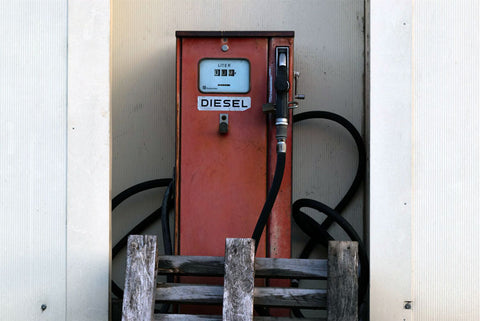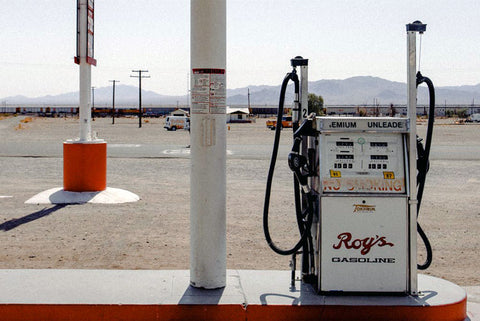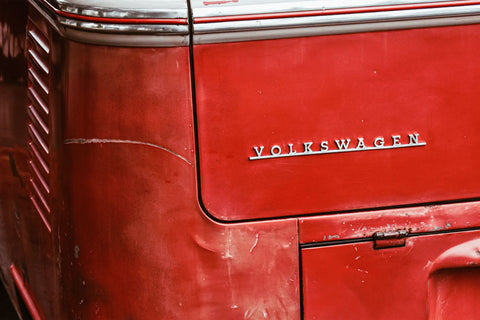Gasoline vs. Diesel Fuel: Advantages and Disadvantages of Both
Whether car and truck buyers are looking to make smart investments or they're simply looking for better fuel economy, they're often curious about the difference between gas and diesel options. From the lifespan of the engine and resale value to thermal efficiency and mileage, there are a variety of critical differences between the two.
In this blog post, BenchForce, a leader in automotive bench programming, digs into those differences, weighs the pros and cons of each, and aims to determine why diesel might sometimes get a bad rap.
Comparing and Contrasting Engine Processes

Both gasoline and diesel fuel are made from crude oil at petroleum refineries. And, interestingly, they both use four-stroke internal combustion engines. However, the main difference in how gasoline and diesel work inside an engine happens during the combustion process. More specifically...
In a gasoline engine:
- Fuel is mixed with air (intake stroke)
- Piston goes up and the mixture of fuel and air is compressed (compression stroke)
- Fuel and air mixture is ignited through the use of a spark plug (combustion stroke)
- Piston goes up and exhaust is pushed through the exhaust valve (exhaust stroke)
In a diesel engine:
- Intake valve opens to take air in and the piston goes down (intake stroke)
- Piston goes up and the air is heated and compressed (compression stroke)
- Fuel is injected and ignition occurs while the piston goes down (combustion stroke)
- Piston goes up and exhaust is pushed through the exhaust valve (exhaust stroke)
Is Diesel Better Than Gasoline?
By and large, Diesel engines are generally more common in trucks and larger vehicles, whereas gasoline engines are found in a wider variety of vehicles. When it comes to repairs and maintenance, diesel engines have a tendency to be more expensive than gasoline, but they require less upkeep due to their mileage and longevity, making them the cheaper option in the long run.
| Diesel | Gasoline | |
| Advantages |
|
|
| Disadvantages |
|
|
Diesel engines are more fuel-efficient than gasoline engines and can use alternative fuels, such as Biodiesel, with minimal modifications. Its efficiency is owed to the density of diesel fuel and the rate at which it converts thermal energy into mechanical energy.

According to the Argonne National Laboratory (ANL), a research division of the U.S. Department of Energy, only 20% of the fuel in a gas engine moves the car, and the rest is lost to other functions, whereas 40% or more fuel is used in a diesel engine. The ANL also states that in comparison to gasoline, diesel:
- Is less flammable
- Gets better power at high altitudes
- Meets the same pollution criteria
- Produces less carbon dioxide
Despite the obvious benefits, diesel options in the United States never caught on the way they did everywhere else in the world. In the U.S., people often associate diesel vehicles with being dirty, expensive, and damaging to the environment. However, compared to gasoline options, these beliefs are unfounded, especially with today's advances.
“Dieselgate” Scandal
In 2014, Volkswagen, a German vehicle manufacturer, accounted for more than half of U.S. diesel car sales. The company promoted its vehicles in the same year by promising “clean diesel” fuel, guaranteeing lower emissions and a cleaner environment. Each vehicle that Volkswagen manufactured came ready with emissions software that monitored the vehicle’s emissions drive cycle according to the Environmental Protection Agency (EPA).
In 2015, the EPA soon discovered that Volkswagen’s “clean diesel” promise was actually in violation of the Clean Air Act. Testing was conducted by the International Council on Clean Transportation (ICCT), West Virginia University’s Center for Alternative Fuels, Engines, and Emissions (CAFEE), and the California Air Resources Board (CARB).
During federal testing, Volkswagen used their “defeat devices,” software that alters emissions, to ensure that full emission controls were active when testing was conducted regarding oxides of nitrogen (NOx). Outside of testing, emissions from the vehicles were not heavily regulated. What’s more, the EPA found that “approximately 590,000 model year 2009 to 2016 diesel motor vehicles” were equipped with this software.

As a result, Volkswagen underwent two multi-billion-dollar settlements, pled guilty, and ensured that emissions modifications were made to their vehicles. The California Air Resources Board (CARB) has stated that Volkswagen is also expected to “invest $800 million for zero-emission vehicle projects in California over a 10-year period.”
Since the Dieselgate scandal, numerous legal measures have been taken to ensure that Volkswagen and other automotive companies are not making the same choices regarding “defeat devices” and emissions testing. Emission requirements have also been tightened by the EPA. Moving forward, Volkswagen USA wants to be the climate-friendly alternative.
Tuning with BenchForce
So, if you're looking for an engine with a longer lifespan and better fuel economy, diesel is better for you; but if you're searching for an engine with lower costs and improved power, consider opting for a gasoline-powered engine. But whether you're diesel all day or going with gas, BenchForce has you covered. If you’re interested in learning more about tuning or remapping, visit our Vehicle Tuning and Remapping Glossary or contact us today.


Leave a comment
This site is protected by hCaptcha and the hCaptcha Privacy Policy and Terms of Service apply.